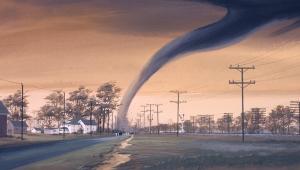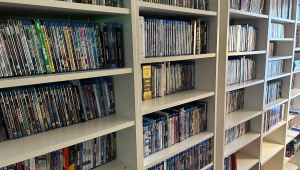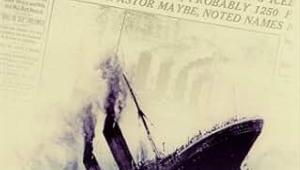Viewpoint: A Modest Proposal
 I'm a huge fan of having a physical copy of video content (high-definition or otherwise) for my own personal use any time I see fit. The downloading paradigm scares me. It opens up all sorts of ways for the provider to stick it to the consumer. How about paying every time you want to watch? How about additional compression so our downloaded movies are "High-Definition Quality," like those "CD-quality" MP3s? How about spyware or adware along for the ride? Pop-up ads in mid-movie, anyone?
I'm a huge fan of having a physical copy of video content (high-definition or otherwise) for my own personal use any time I see fit. The downloading paradigm scares me. It opens up all sorts of ways for the provider to stick it to the consumer. How about paying every time you want to watch? How about additional compression so our downloaded movies are "High-Definition Quality," like those "CD-quality" MP3s? How about spyware or adware along for the ride? Pop-up ads in mid-movie, anyone?
But aside from rogue ads and other Internet junk, I could accept downloaded films if they allowed the use of a device with the functionality of the Kaleidescape System I just reviewed, in full high definition, and at consumer-friendly prices. There are still problems with the time it takes to download HD programming of significant length, but they will be solved eventually—hopefully in a way that won't affect quality.
Consider this. You have a Kaleidescape System or something like it from the inevitable competition. Or even a properly tricked-out computer—after all, the Kaleidescape System is essentially a computer, software, and massive storage. You connect to a service much like a legal music download site, but with thousands of high-definition movies available. The film is downloaded directly to the server. You'll initially pay a flat fee—no more than $10, perhaps—to watch the film once, perhaps with the usual trailers, FBI warnings, etc. The price might also be based on how new the film is; at the right price, perhaps $25, you might even be offered the chance to download a film on the day it shows up in theaters, for a single viewing in the privacy of your home at the time of your choosing. Theater owners will certainly embrace that option (NOT!).
If you decide you want the film as part of your collection, you'll select a buy-all option at the end of the movie (there will also be a "remind me later" option, or a separate link, to which you can return in a specified period of time if you decide you want to buy it later.
If you do select buy-all, you'll pay an additional fee. Keep it reasonable, content providers, or you'll kill the whole business model (as will any attempt to set a time-limit on ownership, like a year with a later update fee!). The total cost to buy it all should be no more than $20-$25 (including the initial viewing charge, but apart from current in-theater releases), depending on the film. Older films might cost less for one-time or unlimited viewing. Buy-all will also get you additional bonus materials, like making-of features, commentary tracks, and more.
Once you choose buy-all, the system will also allow the film on your drive to be accessible in ways similar to the features on the Kaleidescape System—skipping the opening detritus like FBI warnings and trailers (do we really need to watch this stuff more than once?) and going directly to the film. You'll also be able to bookmark favorite scenes, combine favorite scenes from different films, and more. There should be no copy-protection concerns, since everything will be done inside the box.
I can also envision this sort of functionality being built into high-end televisions sets, with additional server storage available later, if needed.
You'd also need some sort of protection for your collection in case of a catastrophic system failure. You don't want to have to replace 600 films at $25 each (that's $15,000, folks), since you'll have no permanent backups as you currently do with your DVD collection. With storage getting cheaper, perhaps a backup hard drive, redundant RAID array (like the Kaleidescape System), or some yet-to-appear form of mass storage, like holographic memory, could hold another copy.
Even better, the system might allow you to transfer those films to some sort of recordable DVD, such as Blu-ray. It should be possible to encode the films to allow one-time copying and prevent making a copy of that copy. That copy could also eliminate trailers, FBI warnings, and other garbage that currently clutters up our DVDs, since you've already been forced to sit through it on the first viewing.
Best of all, the entire system could be installed and ready for under $2000 (as long as I'm dreaming!). Seriously, competition should drive the price down. The more potential users, the more likely such a system will be to take off. And with limited copy-protection issues, Hollywood will be relieved of its concerns and won't mind if the hardware to use the system is affordable to a wider market.
The system could also be designed to provide useful feedback on films to filmmakers. It might be used for sneak previews and test screenings. With its current box-office problems, Hollywood might welcome a way to test-market future films. It would also open up huge opportunities for independent filmmakers, some of whom are beginning to use standard-definition downloads to distribute their creations.
None of this, however, dampens my enthusiasm for seeing high-definition programming distributed via optical discs such as the imminent Blu-ray and HD DVD—as long as those two formats don't end up killing each other off in a consumer-alienating format war!
- Log in or register to post comments






























































